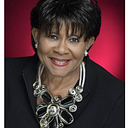Your Proactive Caregiver Advocate: Dr. Cynthia Speaks!
Topic: Eldercare Abuse Hiding in Plain Sight: Beware!
Caring for an elderly loved one is an act of love. Did you know the act of love can sometimes become a problem that centers on abuse? We are a trusting nation mostly, and attending to the needs of loved ones can be challenging if unprepared. Not being prepared for the countless unknowns can turn into elder abuse. If elder abuse is ever suspected, it must be reported.
What is Elder Abuse, and Why Talk About it?
Elder abuse is simply the mistreatment of an elderly person in many ways: physical, psychological, sexual, neglect, and financial fraud. Elder abuse is a reality and occurs more often than we care to admit. It is not easy to fathom someone could abuse an elder. Recognizing the subtle signs demands mindfulness, awareness, and action. Elder abuse is not solely linked to one socio-economic community or race; it can happen in households where family members are caregivers, as well as in residential facilities like nursing homes and assisted living facilities. It may not always be apparent because not all abuse is seen, meaning abuse can hide in plain sight.
What Are Some Ways To Recognize Elder Abuse?
Physical abuse is the most obvious because of injury from hitting, shoving, restraining marks on the wrist or legs, or pushing down by a caregiver. What is less obvious is giving drugs that keep elders asleep so they do not have the concern of care, like feeding or toileting.
Psychological abuse is a form of threatening, yelling, intimidating, ignoring, or isolating actions like keeping an elder closed off from the environment.
Sexual abuse is touching, feeling, sex acts, or even taking off clothing in front of others.
Neglect(also considered abandonment) can be intentional or unintentional based on the circumstance. For instance, failing to provide the 2-hour turning of a bed-bound loved one or assuming a care item is unnecessary, like providing a sweater or socks if an elder says they are cold.
Financial Fraud is near and far. Family members in charge of financial needs forge signatures on checks(yes, elders still use checks), take funds for personal use, and make charges on credit cards. A hidden issue is healthcare practitioners overcharging Medicare/Medicaid with made-up diagnoses. This is why it’s important to go to the doctor and ask for medical records, medication records, and test results records.
What To Do! How to Prevent Elder Abuse?
Educating the community about elder abuse, discussing respite care, support for anyone caring for the aged, and encouraging coping mechanisms for those challenging periods of caregiving.
If you believe that an elderly loved one may be abused or neglected, contact the Adult Protective Services in your area. Reporting can be done 24/7. Be cautious! Be Safe! Be Well!
As Your Proactive Caregiver Advocate, I encourage you to pay attention to your loved ones’ behaviors, actions, and inactions. More than one family member should know what happens with elderly loved ones in the home or a facility. If anything feels off, it probably is! Outside caregivers, like family caregivers, can be guilty of eldercare abuse.
Dr. Cynthia J. Hickman is a retired registered nurse and case manager, CEO of Your Proactive Caregiver Advocate and author of From the Lens of Daughter, Nurse, and Caregiver: A Journey of Duty and Honor, and The Black Book of Important Information for Caregivers.
Website: www.cynthiajhickman.com
